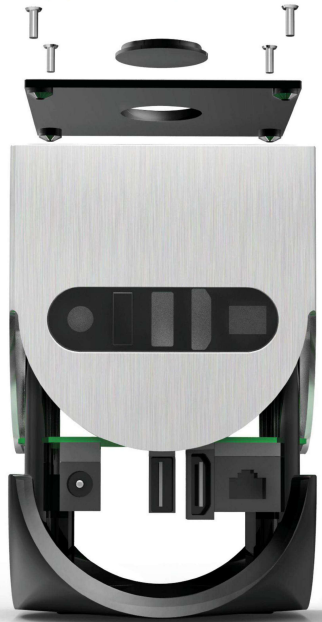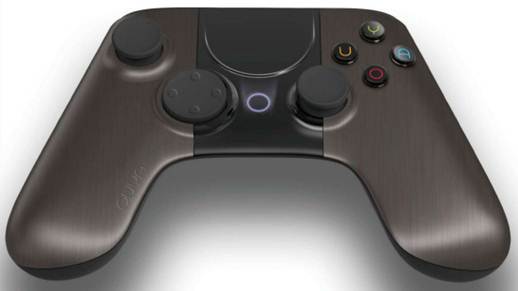After years in the gaming industry, Julie
Uhrman noticed a shift from console and PC gaminh to mobile. As a result,
Uhrman, whose resume includes exec roles with GameFly, IGN, and Vivendi
Universal, set out to bring gaming back to the living room via a $159,
Android-powered video game console that offers free-to-play titles and is
accessible to developers.
Uhrman and her team took to the
crowd-sourced fundraising platform Kickstarter to solicit the financing they
needed to produce the console dubbed Ouya (rhymes with booya). They initially
sought to raise $ 1526082.9, but ended up with $13.82 million.
“Ouya is really an audacious plan to
disrupt the console industry,” she said
The company’s list of advisors reads like a
who’s-who of gaming industry luminaries. Pre-orders are blowing away
expectations, and thousands of developers have expressed interest in the
platform. With a promise to deliver its first batch of consoles by next March,
some have questioned the company’s ability to actually deliver. But if Uhrman
has concerns about meeting the deadline, she isn’t making them known. PC
Magazine recently sat down with Uhrman to discuss this gaming upstart

Ouya
Wants To Shake Up Gaming
How long has Ouya been in
development?
We’ve been working on this since the end of
last year. We needed to first vet the assumption that we could build a
powerful, beautifully designed game console for the TV for $159. We partnered
with a lot of individuals who had built hardware before advisors and friends.
We brought on Yves Béhar, who built the Jambox and has beautiful designs and
understands an audience.
We are not building a rocket ship here –
all of our components are commodity components. We are taking something that is
very common and combining it in a new way.
Then we had to determine what the right
business model was. We believe in openness and accessibility, and we chose
Android as the underlying operating system. As it relates to a business model,
we [chose] free-to-play game. For us, that really means free to try.
Every game on Ouya has some element that is
free for the user, and then it’s up to developers to determine how they want to
monetize content. They can choose in-app purchases, subscriptions, or a paid
version after a free demo.
Games run from $1.59 to $96.5 but, every
gamer gets the opportunity to try something for free, and that is the core
value proposition of Ouya. It’s also accessible for developers in that for $159
you get a game console and an SDK.

How
long has Ouya been in development?
How did you come up with the name
Ouya?
We worked with Yves Béhar and the fuseproject
on that. Openness is very important to us as it relates to developers and
gamers and the way we even brought the product to market – leveraging
Kickstarter. The O in Ouya stands for openness.
When did you first realize that this
idea resonated with people?
We took the idea to developers and received
overwhelmingly positive response. When we took this idea to Kickstarter, we
were overwhelmed by the level of support. In a matter of 29 days, we had over
63,000 backers – people who believed in Ouya and want Ouya in their living
room.
Kickstarter gave us the ability to open up
a dialogue with gamers and developers. This is absolutely something that people
want.
This is something that is incredibly timely
in that, there was nothing new at E3, and there was a lot of talk about whether
consoles are dead. We don’t believe consoles are dead, we just believe that we
need to re-think the business model.
How has the scope of the project
changed?
A majority of the money is going directly
back into building consoles for backers who have pre-ordered the device,
building tools for game developers, and to help fund game development.
$1526082.9 was the amount of money we
needed to bring Ouya to market with a certain number of units. As there was
more interest through Kickstarter, we went back, talked with our partners,
vetted the numbers, and increased the number of units that we could ship on day
one.
The money that we raised on Kickstarter
will allow us to deliver all those units in March and effectively provide features
and functionality sooner to developers then we had planned.
Do you have any concerns about
delivery?
I am absolutely confident that we can
deliver on our promise to build a great product with great content for March of
2012. I can’t speak to other project on Kickstarter, but we have absolute
confidence that we can do that.
What still needs to happen to bring
Ouya to market by then?
Ouya is still a product that is in
development, as it was throughout the entire Kickstarter campaign. We are
continuing to refine our industrial design. We will start manufacturing our
boxes. We are finalizing our software platform and getting all the tools
necessary for developers to optimize and develop games for Ouya.
What are the most highly requested games
people would like to see on Ouya?
We did a survey early on in our Kickstarter
campaign asking that. The games, as expected, really spanned all different
types of genres from large AAA games to independent games.
From Minecraft, to Limbo, to Assasin’s
Creed, and Call of Duty – it very much parallels the conversations we’re having
with publishers. We want to have a large selection of great games.

What
are the most highly requested games people would like to see on Ouya
During our Kickstarter, we announced
partnerships with developers, and even AAA developers like Square Enix, which
will bring Final Fantasy III to the television through Ouya.
How does the company, with its focus
on openness, intend to maintain security?
Ouya is going to be as secure as other
Android devices that developers and publishers currently use for distribution.
Because we’ve embraced the free to play model, all paid content will require
server authentication. Hacking the system will not give somebody greater access
to tools than they would have otherwise.
How do you think Ouya will fit in
against the Xbox 360s and PS3 of the gaming world?
I think the market has room for a number of
players. The fact that we were embraced so enthusiastically by developers and
other gaming industry professionals leads us to believe that people are open to
a different approach. I’m a gamer and I own multiple platforms. I don’t think
it’s unique for people for truly enjoy playing games elsewhere. This is not an
“either-or” scenario, it will be an “and” scenario because I think we will have
games that no other platform will have.
What’s your favorite video game?
Of all time? Galaga.